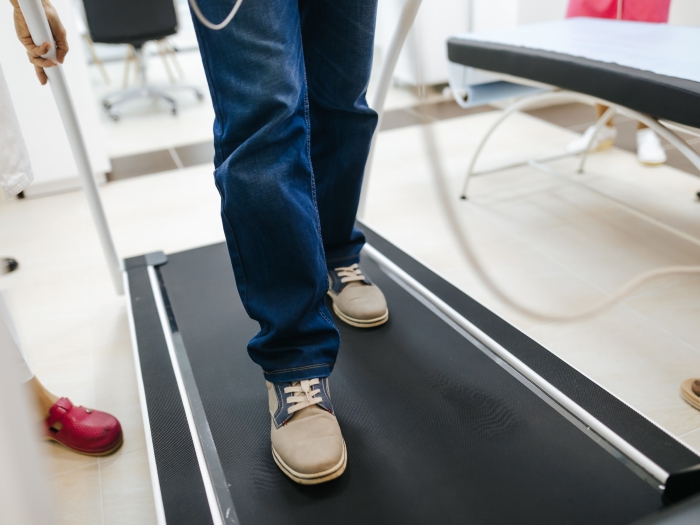The program is recommended by the Centers for Medicare and Medicaid services for patients who undergo heart valve repair or replacement
5:00 AM
Author |

The vast majority of people who have a minimally invasive heart valve replacement procedure do not participate in recommended cardiac rehabilitation, a Michigan Medicine-led study finds.
Researchers used clinical registry and health care claims data from over 3,300 patients who underwent transcatheter aortic valve replacement, or TAVR, in Michigan across 24 hospitals between 2016 and mid-2020, to determine the rate of cardiac rehabilitation participation and the factors associated with its utilization.
Results published in JACC: Advances reveal that just 30.6% of patients who underwent TAVR participated in cardiac rehabilitation within 90 days after discharge.
Patients who were older, more frail, smoked or had a history of common heart rhythm issues, like atrial fibrillation, were less likely to enter cardiac rehab.
Whether a patient participated in the medically supervised exercise and educational program varied substantially across 24 hospitals, ranging from 5 to 60%.
This variation across hospitals persisted despite accounting for differences in the characteristics of the patients treated at these hospitals.
The participation rate for cardiac rehab after TAVR was significantly lower than that for patients who had open-heart surgeries.
Researchers say the difference may be explained by TAVR patients being more frail or medically complex than patients who undergo surgical repair.
Investigators also note that patients may not receive the appropriate education regarding the importance of cardiac rehabilitation after this minimally invasive procedure.
“Cardiac rehabilitation has been shown to improve the quality of life for so many patients after cardiovascular procedures,” said first author Devraj Sukul, M.D., M.Sc., interventional cardiologist at the University of Michigan Health Frankel Cardiovascular Center and clinical assistant professor of internal medicine-cardiology at U-M Medical School.
“We found that the differences in participation between hospitals may be related to differences in the process each hospital takes after a patient undergoes TAVR. It is critical that we identify best practices to promote cardiac rehab participation to improve post-operative outcomes.”
Additional authors include Jeremy Albright, Ph.D., Michael P. Thompson, Ph.D., Alphonse DeLucia, M.D., Himanshu S. Patel, M.D., Stanley J. Chetcuti, M.D., and P. Michael Grossman, M.D., all of University of Michigan, Pedro Villablanca, M.D., and Steven J. Keteyian, Ph.D., both of Henry Ford Hospital, and Duane Berkompas, M.D., of Corewell Health.
Data for this study was sourced from the Michigan Structural Heart Consortium and the Michigan Value Collaborative, both of which are supported by Blue Cross Blue Shield of Michigan. However, the opinions, beliefs and viewpoints expressed by the authors do not necessarily reflect those of Blue Cross Blue Shield of any of its employees.
Paper cited: “Predictors and Variation in Cardiac Rehabilitation Participation After Transcatheter Aortic Valve Replacement,” JACC: Advances. DOI: 10.1016/j.jacadv.2023.100581

Explore a variety of health care news & stories by visiting the Health Lab home page for more articles.

Want top health & research news weekly? Sign up for Health Lab’s newsletters today!





